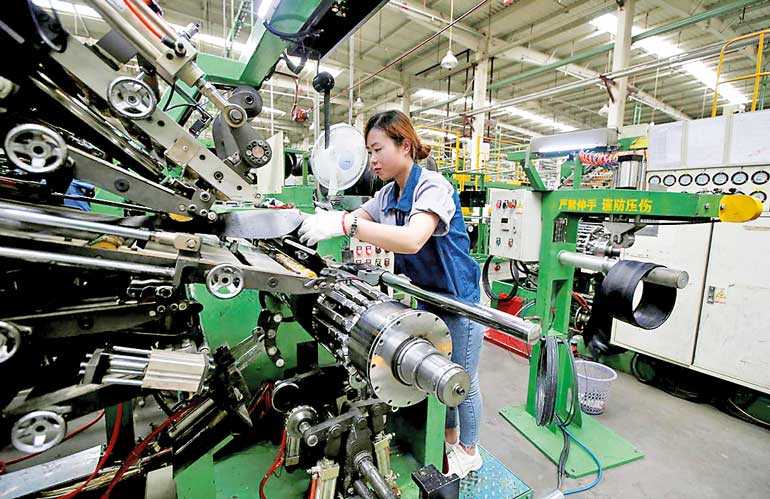Wednesday Feb 18, 2026
Wednesday Feb 18, 2026
Tuesday, 3 September 2019 00:00 - - {{hitsCtrl.values.hits}}

TOKYO (Reuters): The bitter trade war between China and the United States kept Asian factory activity mostly in decline in August, business surveys showed, strengthening the case for policymakers to unleash fresh stimulus to fend off recession risks.
In a surprise development, China’s factory activity unexpectedly expanded in August as output edged up, a private sector purchasing managers’ index (PM) showed on Monday, but orders remained weak and business confidence faltered.
Export-reliant South Korea, Japan and Taiwan also saw factory activity shrink, underscoring the growing pain from the tit-for-tat tariff war between the world’s two-largest economies.
“The broader picture for Asian exports remains very weak because of the impact of the US-China trade war, which is continuing to escalate,” said Rajiv Biswas, Asia Pacific chief economist at IHS Markit.
“It’s not only the US-China trade war. It’s also the slowdown in China’s auto sector and also because the smartphone demand in China has slowed down. That is again having a negative impact on the South Korean and Japanese electronics sector.”
In a fresh escalation of trade tensions, the United States began imposing 15% tariffs on a variety of Chinese goods on Sunday. China reciprocated with new duties on US crude.
In China, the Caixin/Markit Manufacturing Purchasing Managers’ Index (PMI) for August rose to a five-month high of 50.4 from 49.9 in July, beating a median market forecast and exceeding the 50-point level that separates contraction from growth on a monthly basis.
The reading followed Beijing’s official PMI that showed factory activity shrank in August for the fourth month in a row, pointing to a further slowdown in the world’s second-largest economy.
Elsewhere in Asia, Japanese manufacturing activity fell for a fourth straight month in August, underlining a darkening outlook for the world’s third-largest economy.
While Japan’s exports slipped for an eighth month in July due to slumping China-bound sales, the economy has so far enjoyed steady growth thanks to robust domestic demand.